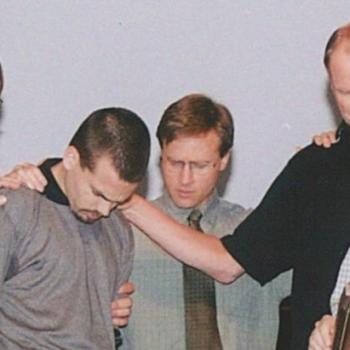Ordination is the starting line for a career in ministry, but getting ordained has a fair amount of mystery surrounding it. Every denomination and church approaches this a little differently but they want to see essentially three things: 1) a sense of call, 2) adequate experience and fit, 3) solid education and beliefs, 4) personal well-being.
Most seminaries help their students prepare for all of the above. They have mentors who help you hone your sense of call. They have residencies and internships to give you experience. Their academic degree will provide an educated belief system. Many also provide the require psychological examinations needed for ordination in denominations.
Think Ahead to the Next-Next Step
This is why choosing a good seminary is so important. Their influence will be felt throughout your life. As I look back on my education and career I’ve got a few regrets. I wish I had done things a little differently. I was too focused on the next step and lost sight of the step past it.
Part of this came because I got started very young. I felt a call to ministry when I was in junior high. There were a few weeks where I contemplated other vocations, but this call was unshakable for me. I knew I wanted to be in ministry, and I picked an undergraduate school thinking that was all I needed. In my non-denominational tradition a bachelor’s degree in ministry or Biblical literature is sufficient for ordination. This is NOT the case in most denominations. I did continue my education at Fuller Theological Seminary and regretted having a bachelor’s degree in the same field. I would have received a more well rounded education if my undergraduate degree had been in something else like communication, English, history, or political science. This is one thing I would do if I had it to do all over again.
For Those Entering College
If you’re in high school and want to enter ministry seriously consider what your educational goals are. Do you plan on attending seminary? (If you’re in most denominations you’ll have to attend seminary to be ordained.) If so, don’t rack up student loan debt by attending a private Christian college! Attend a state school, be an active participant in your campus ministry, volunteer in a local church, and get a degree in something you’re excited about. Then go to seminary!
If you don’t need or want to go to seminary, then attend a Bible college in your tradition. Ask your pastor what they would recommend. Ask a pastor you admire where they went. Get information on your options and then go! While there you’ll be able to start interning and working with other ministries and churches. This way you’ll be ready for full-time ministry when you graduate.
For Those Already in College
If you’re in college and contemplating ministry continue where you are. If you’ve recently felt a call to ministry, finish your degree, and then go to seminary. The diversity of education will be a blessing to you as you minister to and meet new and different people.
A residency program is another path for many college graduates into ministry without attending seminary. You can find residency programs for aspiring pastors at many large churches. These programs are often paid (minimally), provide you with a basic theological education, and give you hands-on experience in ministry. If you do well and they have a spot, you might even get a job! If not, you’ll have some excellent material to put on your resume as you launch from your residency into your first church.
One final piece of advice: don’t stress! Enjoy the ride. If God has called you into ministry. He will equip you for it. I was in such a hurry to get through, that I missed out on some amazing experiences along the way. I wish I had slowed down, taken my time, and spent a little more time savoring seminary.













